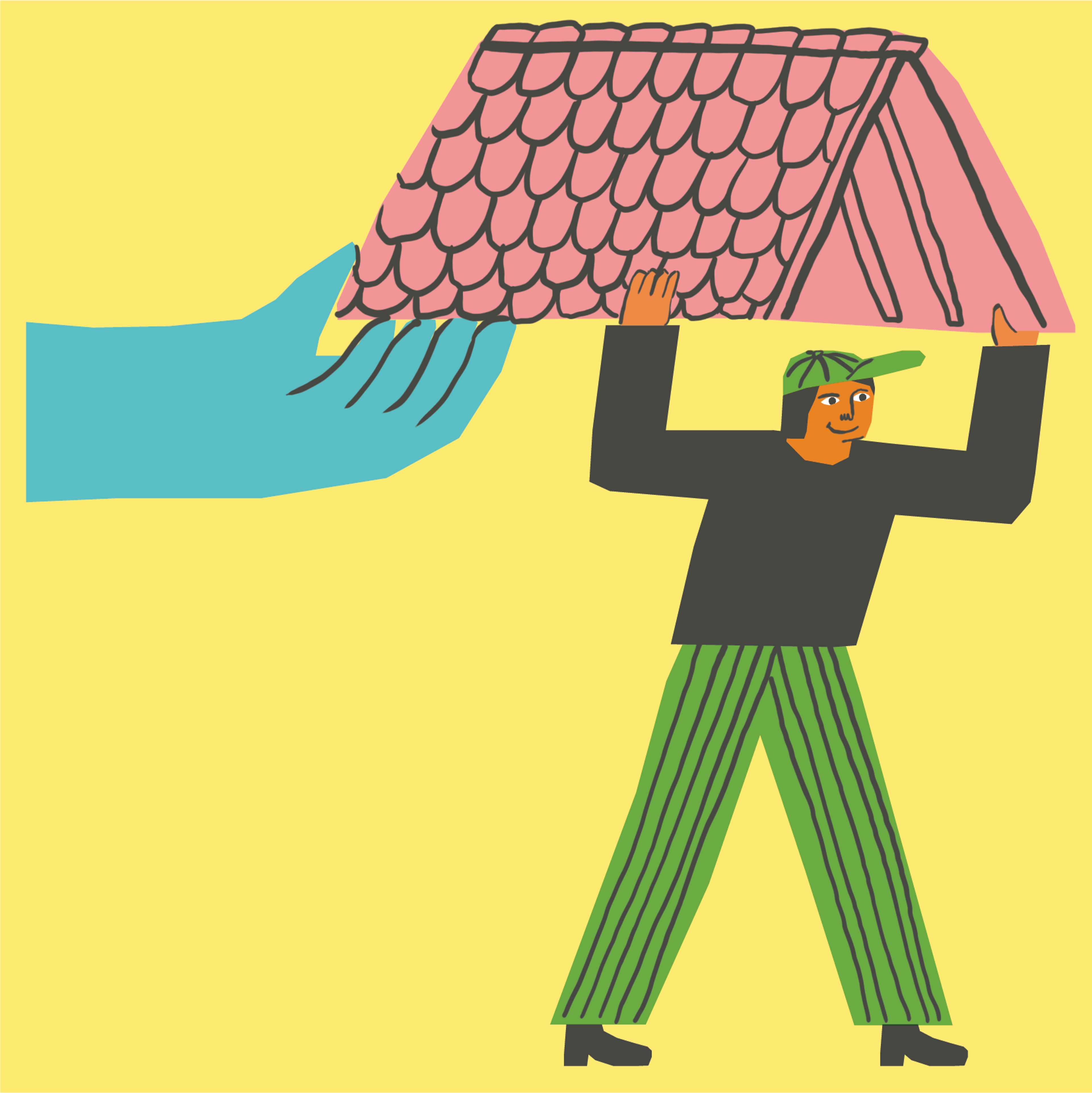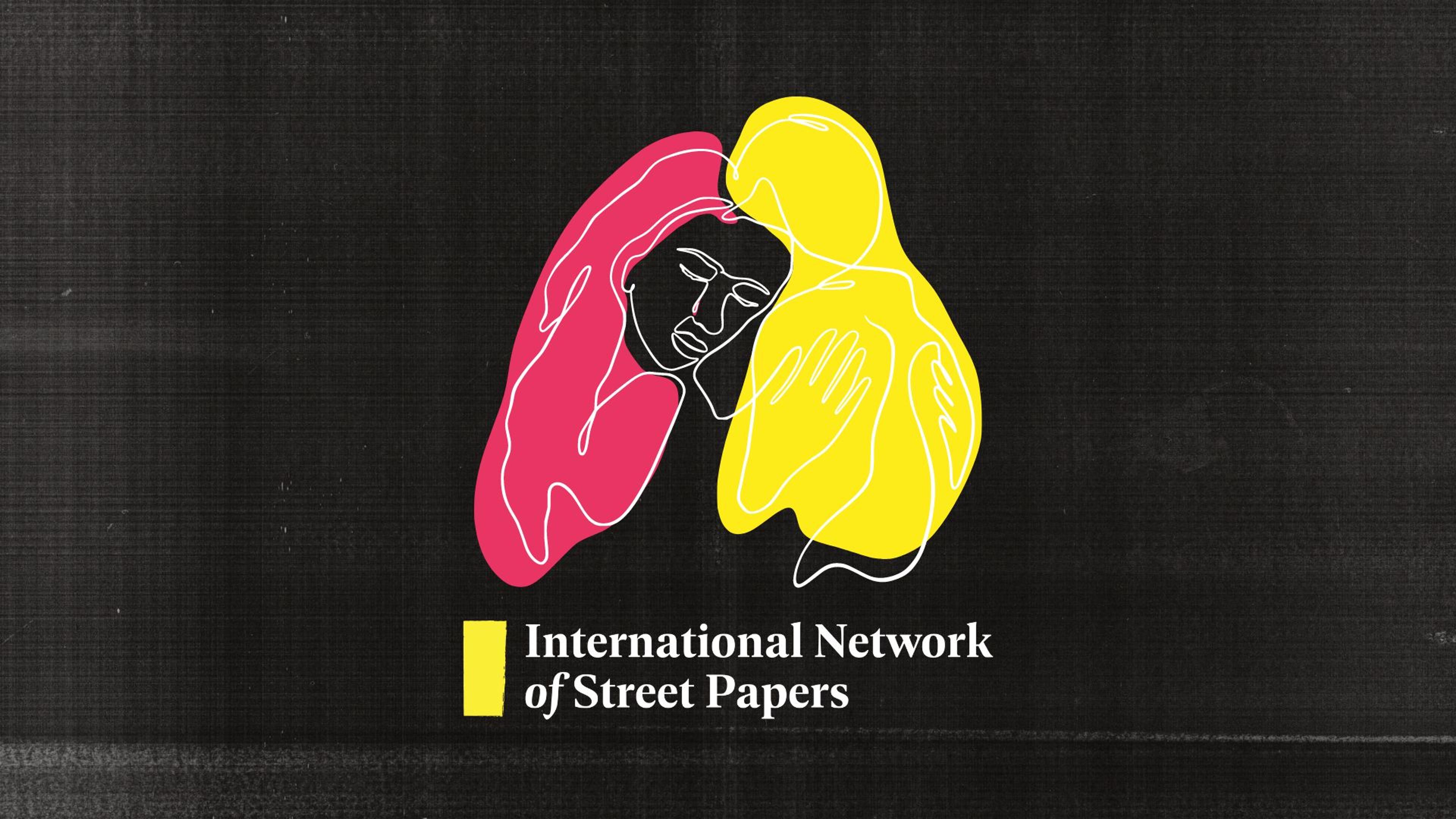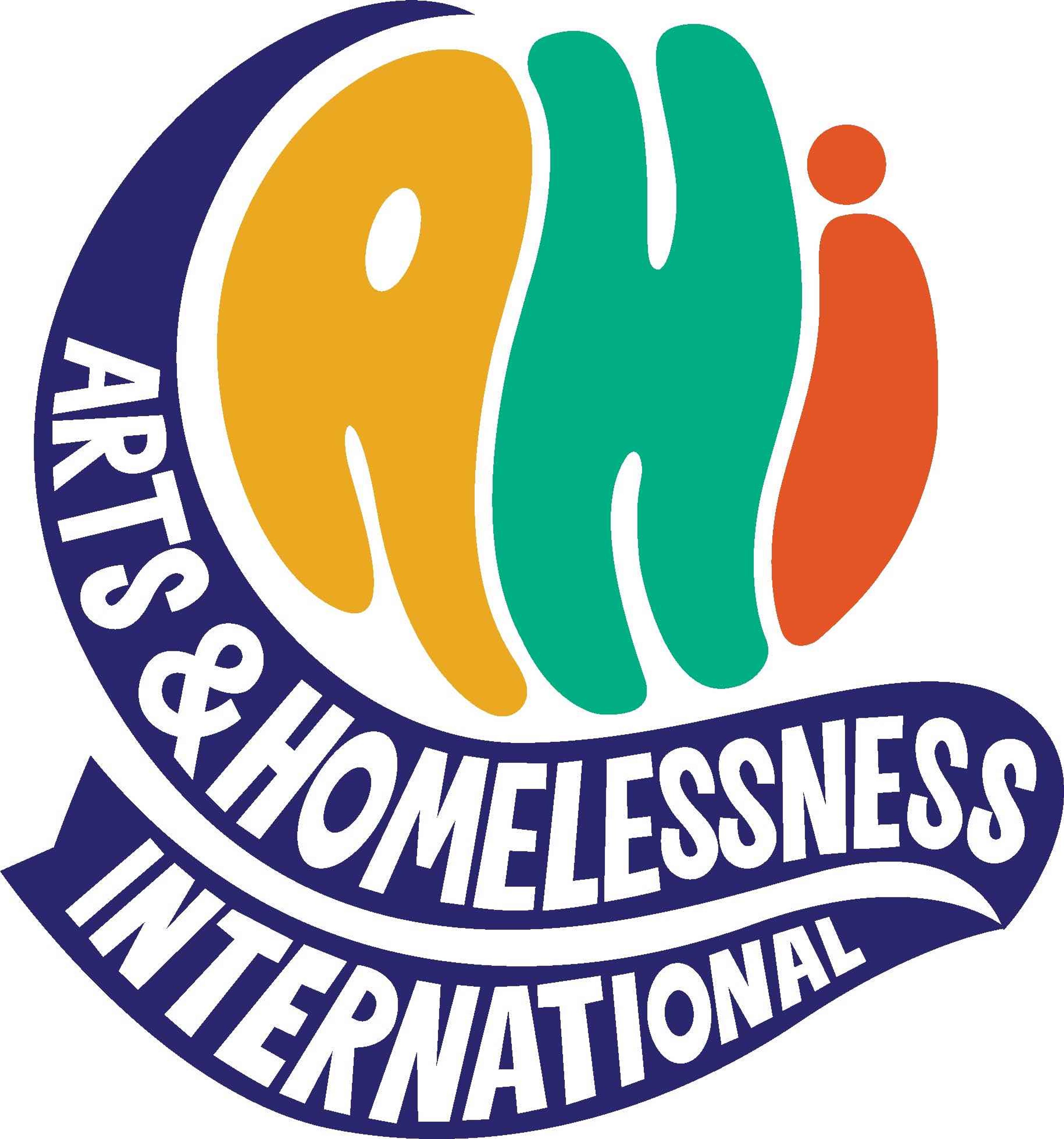Raising awareness about camps, sweeps and displacement in the United States
- News
In recent months, cities and states across the United States have dramatically increased their efforts to sweep and displace homeless encampments and to criminalize people on the streets. A series of posters as part of the nation-wide campaign ‘Housekeys Not Sweeps’, led by the Western Regional Advocacy Project, is raising awareness and combating criminalization efforts and anti-homeless legislation occurring across the country.
In recent months, cities and states across the United States have dramatically increased their efforts to sweep and displace homeless encampments and to criminalize people on the streets. In Tennessee, new legislation has made camping on public lands a felony with a possible jail sentence of up to six years in prison.
A series of posters as part of the nation-wide campaign ‘Housekeys Not Sweeps’, led by the Western Regional Advocacy Project (WRAP), is raising awareness and combating criminalization efforts and anti-homeless legislation occurring across the country.
“Houseless people often live in communities or ‘encampments’ for their safety and well-being. Belongings and community are necessary for survival, but private and public agencies have deemed both these things illegal and are aggressively and violently policing, sweeping, harassing, and attacking our houseless neighbors,” says Paul Boden, WRAP’s executive director. “They are evicted from their encampments and their life preserving belongings are repeatedly stolen.”
The campaign notes the effects of the sweeps are many, including mass incarceration, harm to people’s mental and physical health, and additional barriers to receiving housing and economic stability due to convictions and arrest warrants, disqualifying individuals from receiving public housing assistance.
“Cruel and discriminatory police enforcements cause serious harm and are an incredible waste of resources that would be more effectively spent on solutions to houselessness, such as treatment and housing for poor people,” Boden goes on. “Clearly our government is not choosing real solutions to homelessness, like human rights, livable incomes, healthcare, jobs, and a reinstatement of federal affordable housing funding.”
“In international human rights law, providing shelter to people who are homeless is the
absolute minimum standard for any country, regardless of resources. There’s a cruelty here that
I don’t think I’ve seen,” says Leilani Farha, the former United Nations Special Rapporteur on Housing.
Tens of millions of people have experienced homelessness in America during the past 40 years due to the lack of federal investments in social housing and corporate welfare, the privatization of affordable housing, skyrocketing rents, and the lack of living wage jobs. Currently, more than one million people experience homelessness in the United States, including a high rate of children and families.
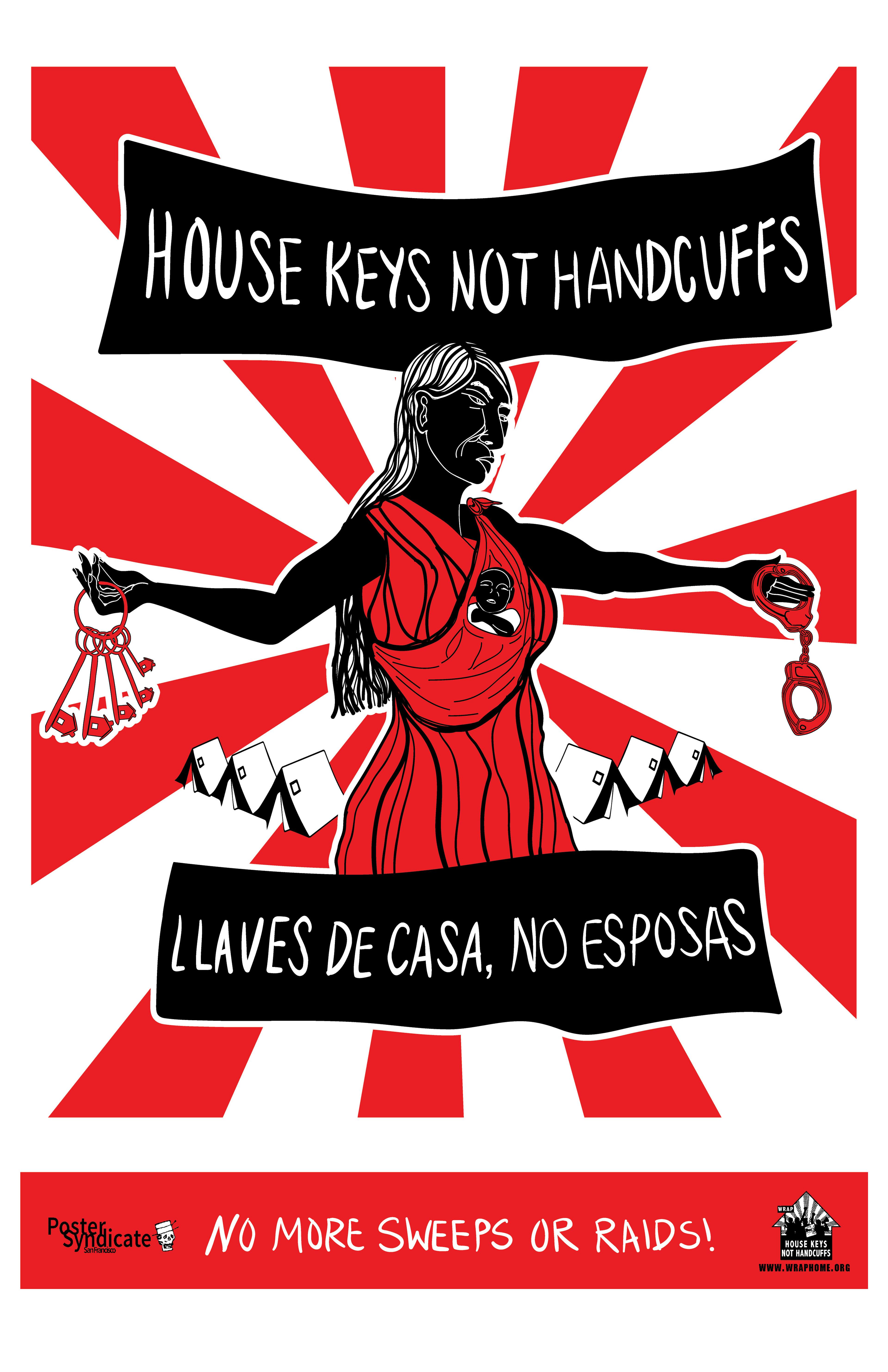
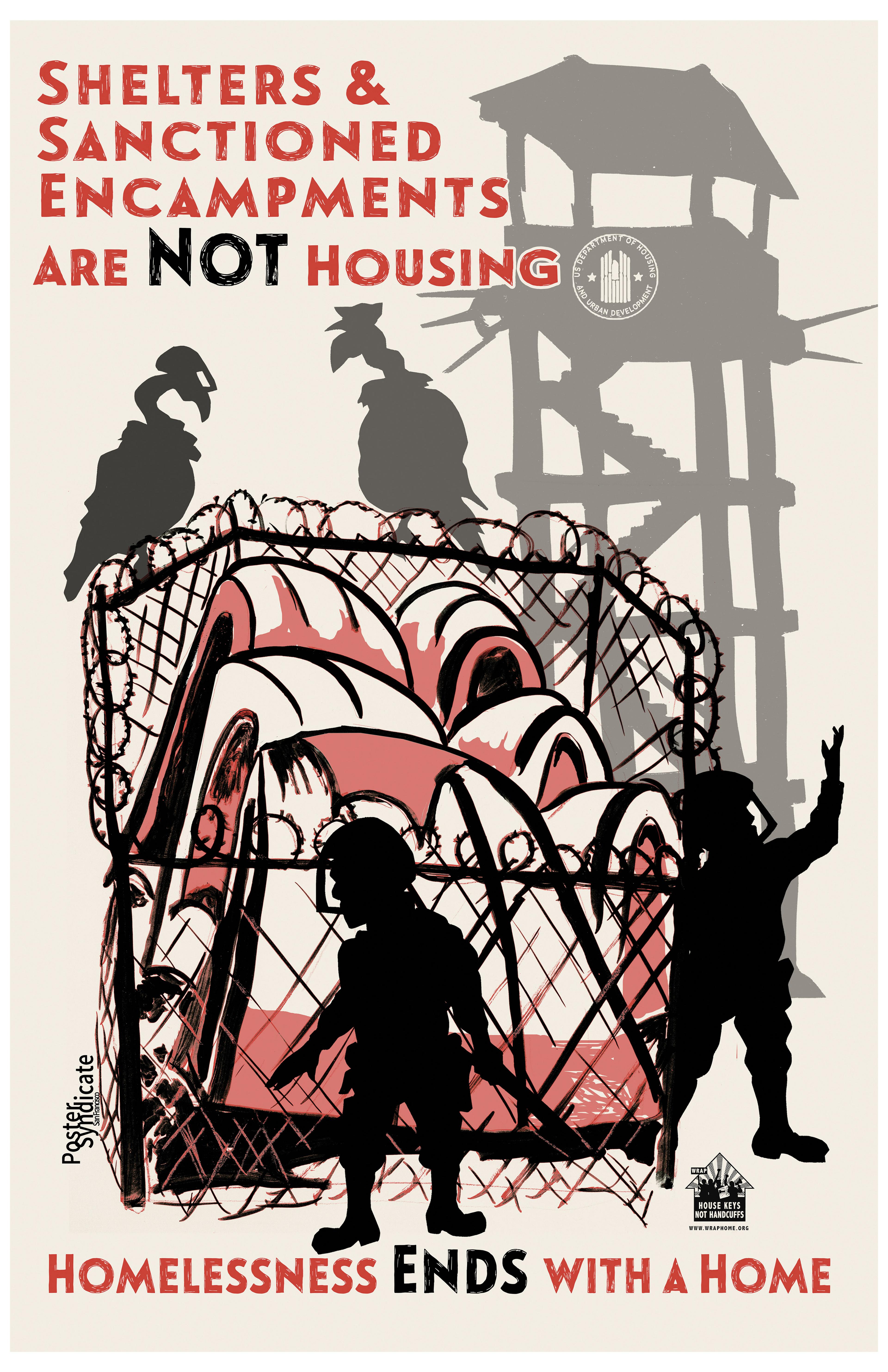

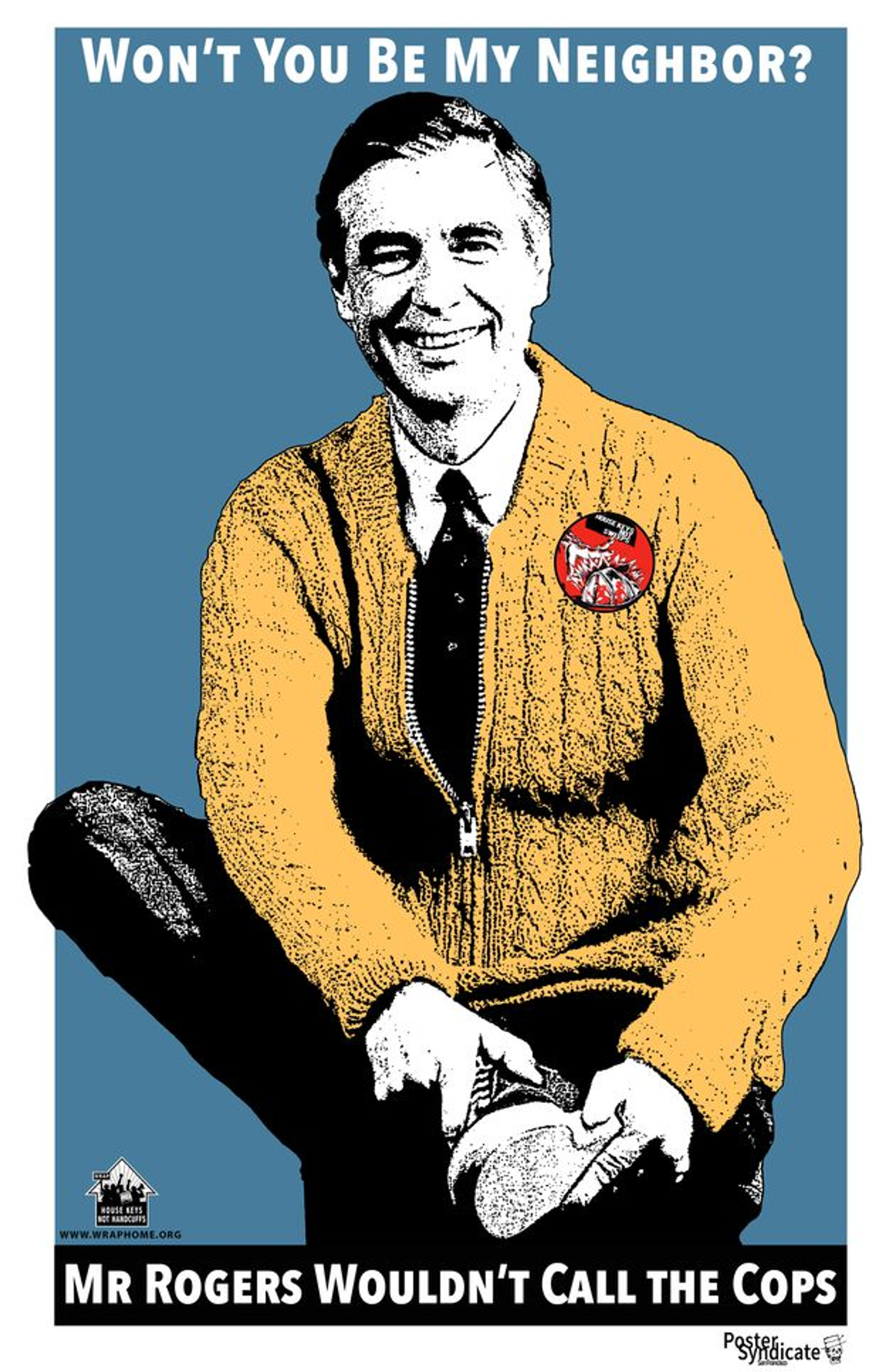
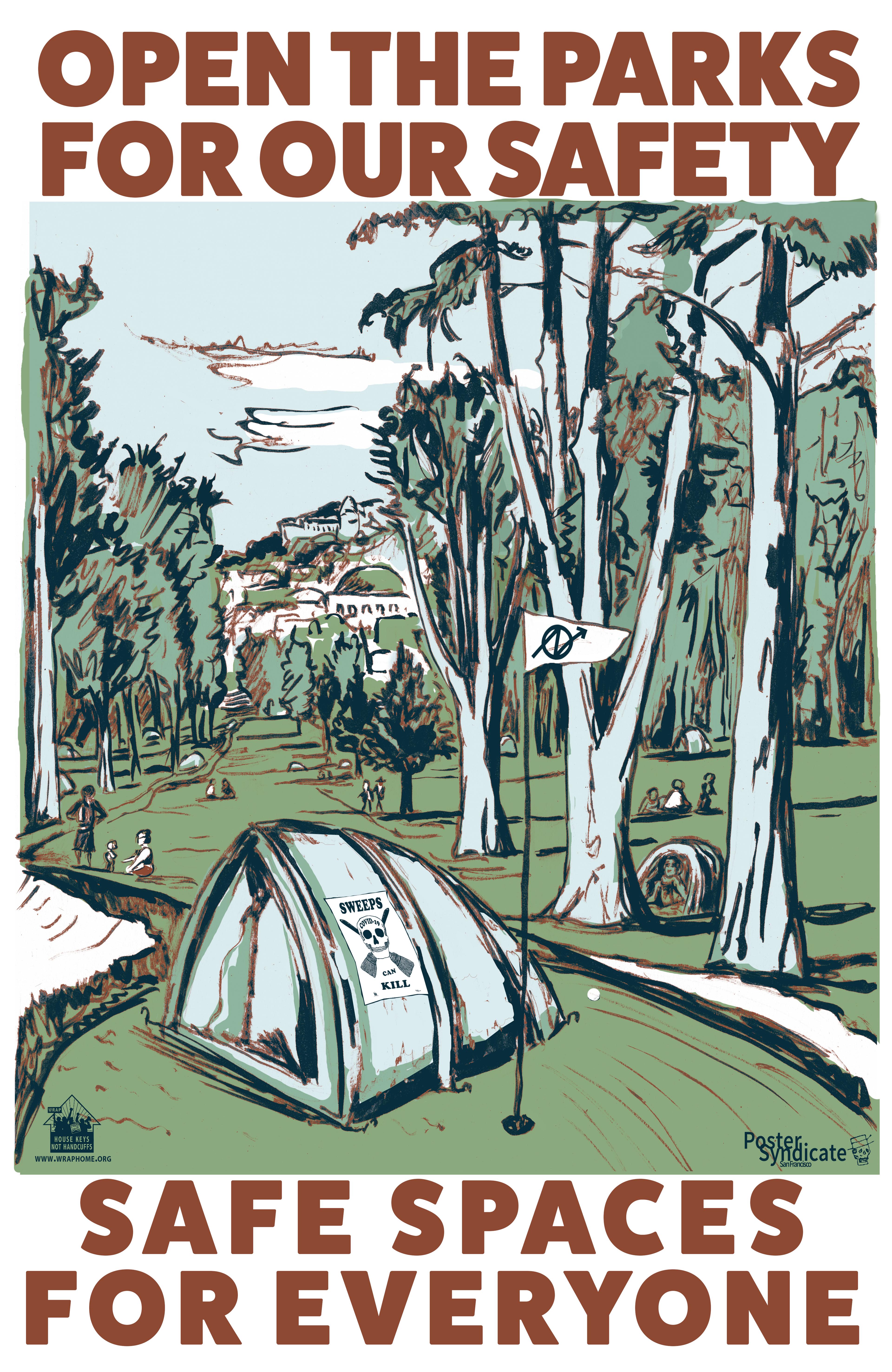
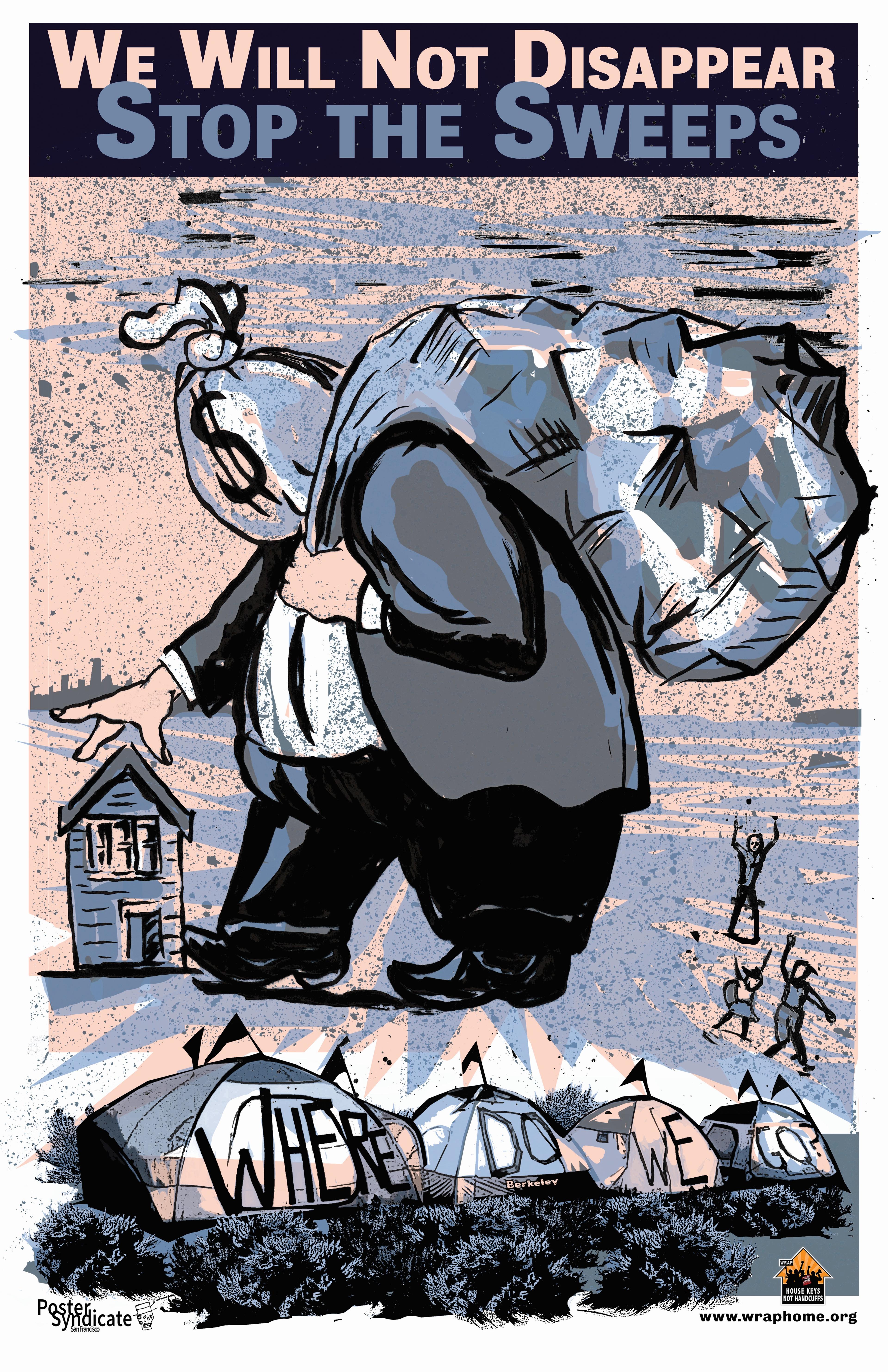







Find out more about the campaign by visiting wraphome.org
All artwork courtesy of the Western Regional Advocacy Project and the San Francisco Poster Syndicate.
